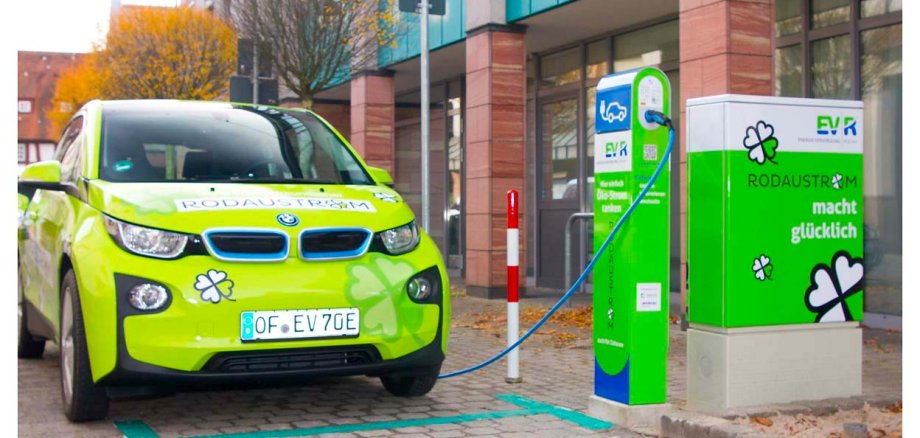When is a parking space at an e-charging station occupied? This question is the focus of the "Smart Mobility" project of the city of Rodgau. The Hessian Ministry for Digitalisation and Innovation is supporting the project with around 119,000 euros from the funding for smart municipalities and regions in the "Starke Heimat Hessen" programme. The basis for the project is the existing open, urban data platform. Last year, the Ministry of Digital Affairs also provided 1.3 million euros in funding for its installation and the smart control of street lighting that it enables. "E-charging points are an important component of smart cities. They make climate-friendly mobility suitable for everyday use and help to future-proof our cities and regions. Sustainable mobility can be promoted and utilised efficiently through intelligent networking. Information about capacities in real time helps to avoid unnecessary searches and thus increase the acceptance of electromobility at the same time. With this project, Rodgau is showing how digitalisation and sustainability can go hand in hand," said Digital Minister Prof. Dr. Kristina Sinemus. Rodgau plans to integrate data from the local charging infrastructure into the data platform. Information on the operating status, usage and current occupancy will be transferred to the data platform via the interface of the charging points' backend. In addition, sensors are installed in the car parks in front of the charging stations to determine whether a parking space is blocked by a vehicle that is not charging. Although the backend systems of the charging stations provide information on the operating status of the charging station, there is a lack of precise data on the occupancy of the associated parking spaces. As a result, charging points are displayed as "free" even though they are actually blocked. In future, the comparison between the data from the car park sensors and the charging point information should enable a precise display of the charging point status. This will reduce unnecessary journeys and annoyance for users and help operators to recognise blockages and take action, thereby improving the transparency and efficiency of the charging infrastructure. The project will use the city's existing open urban data platform, which was introduced as part of the initial street lighting digitalisation project. This platform provides a robust basis for data-based applications and is now being expanded to include a further use case. The modular use cases were designed in such a way that they can be easily transferred to other municipalities with similar infrastructure. The aim of the charging infrastructure management project is to achieve a measurable reduction in the blocking of e-charging points by at least 30 per cent in the first year. According to Rodgau, further benefits of the project include a significant reduction in CO2 emissions by optimising traffic flow and avoiding unnecessary journeys thanks to precise information about charging infrastructure. Furthermore, the use of energy-efficient sensor technology and modern communication networks minimises the energy consumption of the systems. In addition, light pollution is indirectly reduced through the optimised control of the charging infrastructure. Leading the city of Rodgau into a smart future is also a key issue for Mayor Max Breitenbach. "The people in our city expect a better quality of life. This also includes more digitalisation, an efficient strategy and less bureaucracy, i.e. more time for the really important things in everyday life." In order to support local authorities and facilitate dialogue and networking, the Hessian state government set up the Smart Regions Office in the Digital Minister's House in spring 2020. The "Starke Heimat Hessen" programme supports local authorities with important projects for the future. Since 2021, the state has provided around 16 million euros annually for municipal digitalisation projects through the funding of smart municipalities and regions in the "Strong Home Hesse" programme. To date, 125 projects have been or are being supported with a total funding amount of around 92 million euros. Since 2025, a new funding line has been added to the programme: it supports the subsequent use of tried-and-tested, data platform-based solutions. Municipalities that are not directly funded also benefit from knowledge transfer formats, such as the best practice database or experience circles.
Further information can be found at www.digitales.hessen.de/Foerderprogramme/Starke-Heimat or www.smarte-region-hessen.de.
